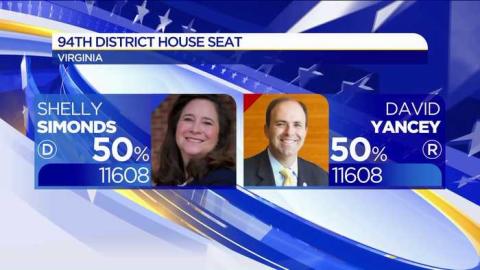It’s been a dramatic week in the race to fill the 94th District seat in Virginia’s House of Delegates. After the initial tabulation from the Nov. 7 election, incumbent David Yancy (R) led challenger Shelly Simonds (D) by just 10 votes (a margin of 0.0419 percent).
During an unofficial recount on Dec. 19, Simonds gained 17 votes while Yancy gained 6, potentially reversing the outcome and leaving Simonds with a mere one-vote lead.
The following day, a three judge panel in Newport News ruled that one of the ballots left uncounted should have gone to Yancy, leaving the race tied at 11,608 to 11,608.
Under Virginia law, the tie will be resolved by lot, so the outcome could be decided by drawing a name from a hat.
The 94th District race is a rare occasion where a recount could change the result of an election because the initial tally was so close. The gap of just 10 votes, or 0.0419 percent, is extremely close to the average margin shift FairVote found in statewide races with less than one million votes: 0.039 percent.
, which found that “ecounts in elections with more voters altered the vote margin by lower percentages than recounts in elections with fewer voters.”Even that average probably doesn’t accurately represent races like this one, since much fewer votes are generally cast in state legislative district races than in the statewide races examined in FairVote’s report
The data show that a recount of a close race in the 94th District will be more favorable to a candidate hoping to change the outcome than one would be in race with a larger electorate, like Atlanta (or Alabama).
Whichever candidate’s name is drawn will decide more than who will represent the 94th District in the Virginia House of Delegates. A Yancy victory would allow the Republicans to maintain control of the chamber by the barest of majorities (51-49). A Simonds win would leave it evenly split between Republicans and Democrats (50-50).
A tie would require Republicans and Democrats to enter into a power-sharing agreement in order for the House of Delegates to operate.
FairVote and the Bipartisan Policy Center have studied similar situations in other state legislatures and produced a set of recommendations for how evenly-divided legislatures can continue to function through bipartisan cooperation. Legislators in Virginia may want to take note.
Editor's Note: This article, written by David O'Brien, originally published on FairVote's blog and has been modified slightly for publication on IVN.
